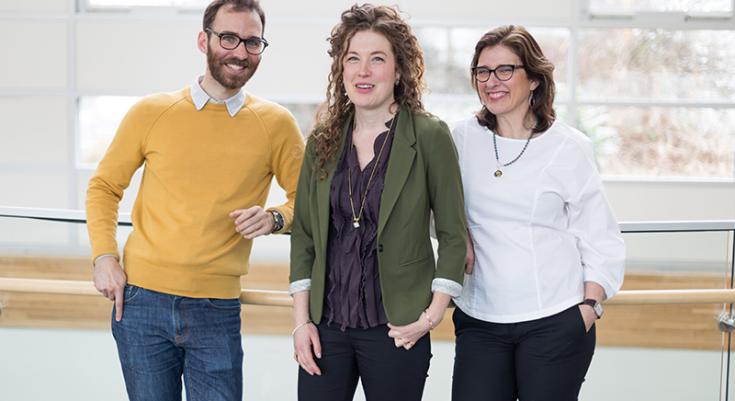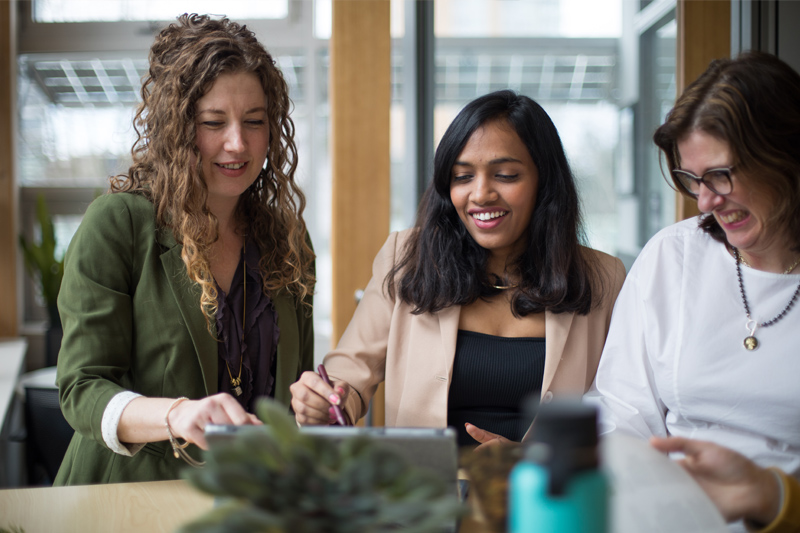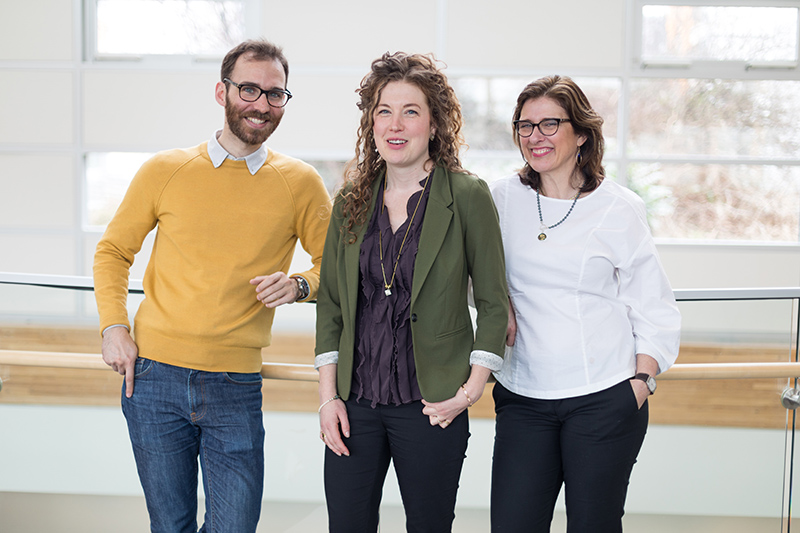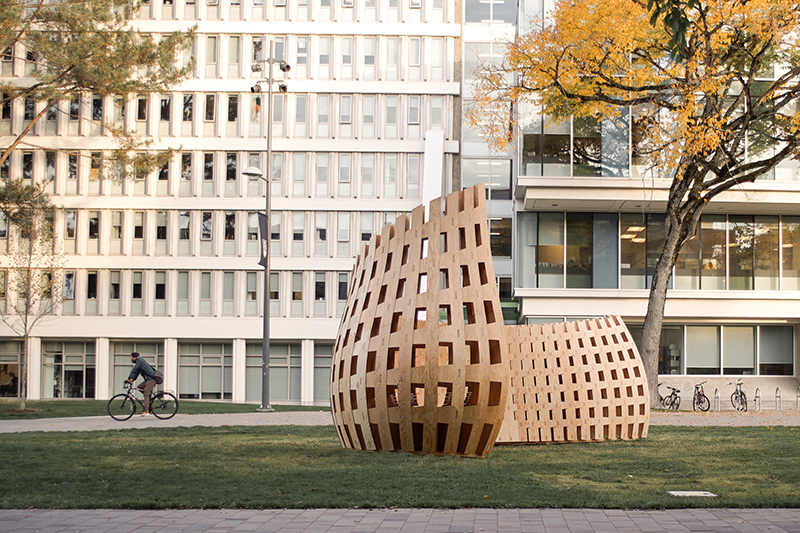
For 18 years, SEEDS Sustainability Program has been creating unique partnerships between UBC students, faculty, staff and community partners. By using the campus as a giant research lab, the ground-breaking program has advanced UBC’s sustainability goals — and won multiple awards and been recognized and replicated across the world.
“How do we move the dial on the climate crisis?” asks Liska Richer, Manager of SEEDS Sustainability Program. “How do we address the collapse in biodiversity or plastics in the ocean? Or strengthen people’s connections to this place?”
The Social Ecological Economic Development Studies (SEEDS) Sustainability Program works to answer questions like these by bringing students, faculty and staff together to study sustainability issues. By seeking solutions to real-world problems on campus, the program works to integrate the university’s academic research with its operational side.
Since the program began in 2001, it’s completed more than a thousand projects through twelve different faculties and schools. Richer has been involved since 2003. In the last few years, the program has grown, and now includes three staff and various student positions who work with about a thousand people on SEEDS projects every year.

Liska Richer, Manager of SEEDS Sustainability Program with Surabhi Shakkarwar, Project Coordinator and Lynn Warburton, Engagement Coordinator.
Advancing Sustainability on Campus
As SEEDS has grown, they’ve learned that most sustainability issues require an interdisciplinary lens. People doing research in one area are often unaware of others doing convergent work in another area, Richer says. “Like any big organization, UBC has countless moving parts, and a rich portfolio of people working in so many areas. The SEEDS philosophy encourages bringing people from different fields together.”
The program now takes a whole-systems approach to every issue, and endeavours to support research that is demonstrative and impactful, and clearly advances sustainability practices and plans on campus.
“We’re unusual in academia because we work to break down walls between specialties. We have to get beyond those silos and work collaboratively if we are to address complex issues and make meaningful impacts.”

The SEEDS team – from left David Gill, Liska Richer and Lynn Warburton.
They are focused on creating partnerships that will enhance sustainability and generate meaningful research and student learning opportunities. This means addressing big societal issues, while advancing the campus strategic sustainability priorities at the same time.
The focus is always on tangible outcomes. “One example is the SEEDS research done in partnership with Department of Psychology, which has resulted in an army of students working every year researching the effectiveness of various interventions that target UBC community members’ waste sorting behavior. Does 3D signage on our Sort-it-out bins affect people’s sorting practices? What about memes, plants, use of colour and mirrors? Can contamination of plastics be curbed?”
Merging the Campus with the Classroom
SEEDS is inspired in part by environmental educator David Orr, who asked What is education for? in an influential 1991 article. Orr wanted to really flip education on its head, by merging the campus with the classroom to create real-world learning. This, he postulated, would produce more people who can heal the planet, graduates well versed in what planetary citizenship really is. The influence of Orr’s work is supported by SEEDS methodology of Community-Based Action Research, which is at the heart of SEEDS in how they identify, work with and disseminate applied research.

The Wander Wood installation was installed on campus in October 2018. The innovative wooden installation was designed by School of Architecture and Landscape Architecture (SALA) students in the Robot Made: Large-Scale Robotic Timber Fabrication in Architecture workshop as part of a SEEDS Sustainability Program project.
UBC was the first university in Canada to create a sustainability office. SEEDS, which grew in tandem, was also the first operational program in the country to unite students and faculty with staff members to advance sustainability issues, using the campus as a giant research opportunity or “living lab.”
In its first year, SEEDS worked with four faculties and a handful of participants. The initial focus was on Land and Food Systems and Engineering (Applied Science). These are still key faculties — the program still does a lot of work around energy, water, waste and food systems — but they’ve since expanded into new critical areas like biodiversity and wellbeing, and into other disciplines like Visual Arts, Film, and Theatre.
Psychology has also become critical to many projects. “We know now that the behaviour element is key,” Richer says. “Our habits and attitudes shape everything.”
Engaging People on Campus
The program has been steadily establishing formal partnerships with UBC faculties and schools through memorandums of understandings (MOUs). These partnerships are really helpful in clarifying how the program works with students and faculty. Recent partnerships have been made with the School of Architecture and Landscape Architecture (SALA) include working together on a design build course. Richer is also excited about the new partnership with the Faculty of Forestry, “It is creating opportunities to do research on urban forestry as part of their capstone courses.”
The program is part of Campus and Community Planning, which means they are closely connected to the university’s long range planning and play an important role in helping the university achieve its ambitious targets and broader commitments to sustainability. Richer says, “It’s our department who is responsible for creating sustainability policy, like the Water Action Plan, the Climate Action Plan, and exciting upcoming whole systems planning. SEEDS works closely with staff to identify research questions that will help shape and implement campus plans, ultimately helping UBC be more sustainable.
“We are at a pivotal moment in time, where there is strong support for programs like SEEDS to not only solve sustainability issues, but also to create lasting interdisciplinary partnerships and research. And help students gain the skills and experience they need to make a difference throughout their lives, and hopefully, make change happen.”
International recognition for SEEDS
The SEEDS Sustainability Program has received international recognition through several awards, and their model has been replicated across several universities in North America and Europe. So far, several universities have created programs modelled on SEEDS, including Portland State University, University of Arizona, University of Washington, Maastricht University, University of California-Santa Cruz, and Swarthmore College in Pennsylvania.
Most recently they received recognition from: International Sustainable Campus Network, United Nations Environment Programme, Environmental Association for Universities and Colleges, and the Association for the Advancement of Sustainability in Higher Education.